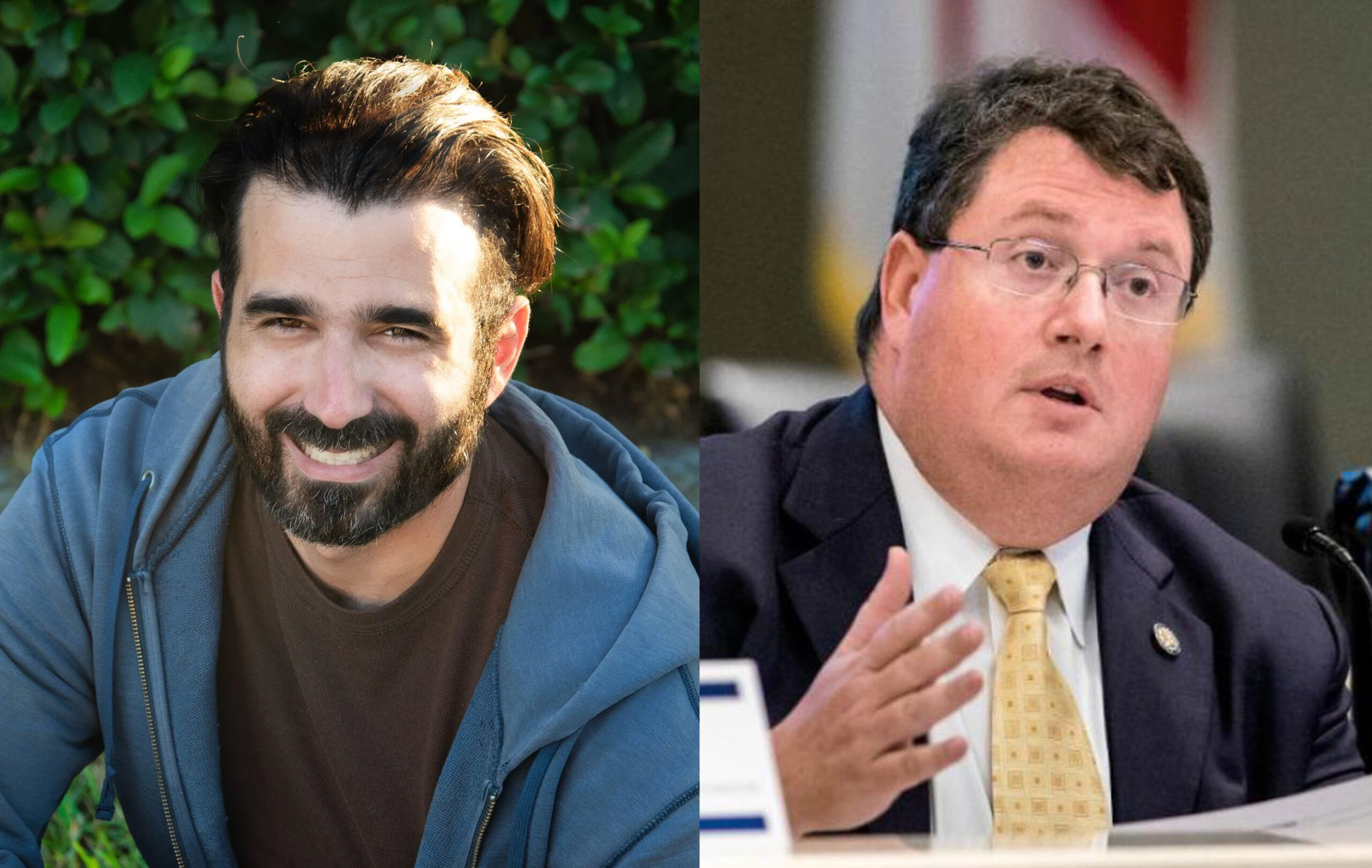The eyes of political viewers across the country will be trained Tuesday night on a congressional race in Northeast Florida. There, polls show Republican Randy Fine and Democrat Josh Weil locked in a neck-and-neck race to succeed former U.S. Rep. Michael Waltz.
That’s shocking in itself, as voters in Florida’s 6th Congressional District just in November backed Donald Trump by 30 percentage points. Waltz in November won his re-election campaign with 66.5% of the vote.
Republicans hold a major advantage in the race as far as voter registration is concerned. With voter rolls closed ahead of the Special Election, CD 6 had more than 273,000 Republicans registered, compared to just over 142,000 Democrats, while another more than 143,000 other voters.
But Democrats have turned lingering resentment over the 2024 Presidential Election into a massive haul in political contributions. Weil said he has raised more than $10 million for the race, mostly in small donations from across the county. By contrast, Fine has underperformed in fundraising, reporting less than $1 million in contributions, according to his latest fundraising report.
But can a middle school math teacher with a “D” by his name beat a sitting state Senator running with Trump’s endorsement in a deep red district? That’s a question the political world will have answered after polls close at 7 p.m. Tuesday.
“For the last four months our campaign has been in the field, knocking doors and engaging with new and current voters,” Weil said. “As we approach election day, our efforts have been reflected in what we’ve seen in the early vote, because we remain focused on what truly matters to the voters. I am dedicated to protecting Social Security, Medicare and lowering costs, ensuring that our seniors and families have the support they need to thrive.
“I’m grateful for the hundreds of thousands of Floridians and regular Americans who still believe in a better future. It’s that grassroots energy that is going to defeat career politician Randy Fine and the huge corporations and special interests that own him and his campaign.”
Fine, though, remains confident the voters in this district remain supportive of Trump’s agenda, and that the final election results will reflect as much. He said the election comes down to some easy choices for conservative voters.
“Donald Trump-candidate vs. Bernie Sanders-candidate. Self-made businessman vs guy skimming his own campaign funds,” Fine said. “Republicans need to vote. If they do, it’s going to be Fine.”
Ground game
When it comes to voter turnout, Democrats have been able to keep things much tighter, according to data tracked by analyst Michael Pruser. As of Monday morning, 19,095 mail-in ballots from Democrats had been received by elections officials compared to 17,562 ballots from Republicans; another 7.519 ballots were received from voters not registered with either party.
After two weeks of in-person early voting wrapped on Saturday, Republicans have closed the turnout gap and then some. In total, 29,841 Republicans across the district cast in-person ballots across the six counties in CD 6, compared to 19,012 Democrats and 7,906 others.
But that still means more than a quarter of all Democrats eligible to vote in the election already turned out before polls even opened on Election Day on Tuesday. By comparison, less than 16% of Republicans had turned out, and Democrats have reason to believe many of those are disaffected voters upset at Trump or who just don’t like Fine.
In fact, one of the Republicans who once represented CD 6 in Congress now serves as Governor of Florida. Fine and Gov. Ron DeSantis have feuded for more than a year over a range of issues, with things taking a notably sour turn after the Palm Bay Republican switched a presidential endorsement from DeSantis to Trump in 2023. When asked about the difference in Democratic and Republican turnout in CD 6 last week, DeSantis quickly pegged blame on “the specific candidate running in that race.”
Nevertheless, the state party reports members of DeSantis’ political team have been knocking on doors in CD 6 ahead of the election. Additionally, the Republican Party of Florida (RPOF) has managed 200,000 volunteer phone calls supporting candidates in this Special Election and another also happening in Florida’s 1st Congressional District. The party will staff tents at most high-traffic precincts.
“Phone calls are still going out from across the state to voters saying if you haven’t gone out and voted, it’s an important election in CD 6,” said Bill Helmich, RPOF Executive Director.
But Florida Democratic Party (FDP) officials also have put resources into the field to back Weil.
“We’re going to run through the tape,” said Matt Dailey, FDP Deputy Communications Director. “We are making sure we reach out to every Democratic voter.”
National attention
The interest in the race proved wide enough to attract Democratic National Committee Chair Ken Martin to canvas the district alongside FDP Chair Nikki Fried. Sanders, a progressive U.S. Senator from Vermont, endorsed Weil.
But Trump also personally stepped in, holding a tele-rally for Fine ahead of the vote. Additionally, U.S. Rep. Byron Donalds, a gubernatorial candidate who once served with Fine in the Florida House, held a tele-rally with Fine on the eve of the election with conservative pundit Ben Shapiro.
Weil held several mini-canvassing events throughout the district and will spend much of Tuesday on the ground in the most populous areas of Putnam, Marion and Flagler counties before holding a party in the evening in Daytona Beach. Fine, meanwhile, spent his Monday in conservative bastions like Tavares and Ormond Beach after spending much of the weekend in conservative St. Johns County.
Privately, Republicans figure if they can grow the difference between GOP voters and Democrats who cast ballots to between 12 and 15 percentage points. But Democrats say even if Weil doesn’t win, the results can send a powerful message. The last time CD 6 was an open seat, when Waltz was elected in 2018, Republicans won by less than 13 percentage points. If Weil simply beats that spread, Democrats could call that a win.
Post Views: 0

 Entertainment8 years ago
Entertainment8 years ago
 Politics8 years ago
Politics8 years ago
 Entertainment8 years ago
Entertainment8 years ago
 Entertainment8 years ago
Entertainment8 years ago
 Tech8 years ago
Tech8 years ago
 Tech8 years ago
Tech8 years ago
 Tech8 years ago
Tech8 years ago
 Politics8 years ago
Politics8 years ago











